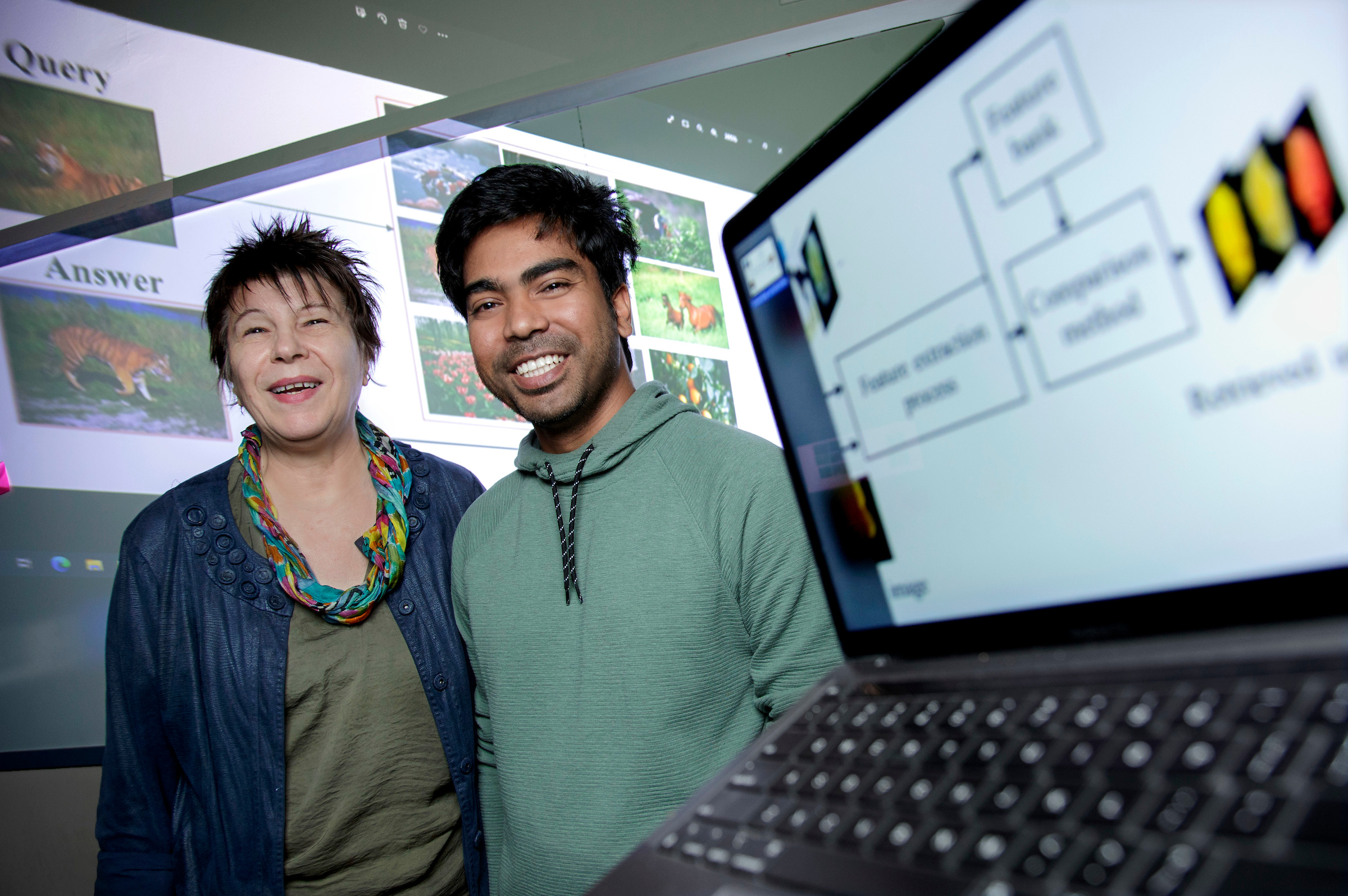UA Little Rock Team Receives $50,000 Grant from National Science Foundation’s Innovation Corps
A University of Arkansas at Little Rock team has received a $50,000 grant from the National Science Foundation’s (NSF) Innovation Corps (I-Corps) program to help bring a new consumer product to market.
The team includes Imran Sarker, a Ph.D. student in computer and information science from Bangladesh, who is developing RightHand, an online marketplace fueled by computer vision and a deep learning-based recommendation system as part of his dissertation research.
“It feels really good to receive this grant,” Sarker said. “I am happy that my research is receiving interest from the National Science Foundation and business leaders. Instead of just doing regular research, I also believe that my Ph.D. research could be commercialized, which will contribute to the U.S. economy by providing technology-based services that will create job opportunities and make a positive impact on the community.”
Sarker’s team also includes Dr. Mariofanna Milanova, professor of computer science at UA Little Rock, who serves as the technical lead for RightHand, as well as Heather Snell, senior data scientist at J.B. Hunt Company, who serves as the I-Corps industry mentor for the RightHand team.
RightHand connects service seekers and service providers within a short period of time and keeps service seekers informed about the status of requested service in real-time. RightHand stands out from other websites that offer consumers matches with service providers like Angi and Thumbtack. RightHand has unique features like image and video-based recommendations of local service providers, the ability to track the service provider in real time, image and video-based reviews, and language translation.
Sarker and Milanova have previously received early-stage funding to help bring RightHand to the market through the University of Arkansas I-Corps Site, STEP (STEAM Training in Entrepreneurial Practices) program and the Delta I-Fund program. The programs helped Sarker and Milanova with their initial customer discovery efforts and prototype development.
Now the team is continuing their work through the NSF I-Corps program, which supports researchers interested in entrepreneurial education and mentoring, with the goal of reducing the time it takes to bring technologies from the laboratory to the marketplace.
I-Corps provides real-world, immersive instruction that allows scientists and engineers to evaluate a technology’s commercial opportunity, a critical first step toward successful translation into products, processes and services that benefit society.
“The grant is helping us to conduct customer discovery interviews so that we can understand the market demand and the needs of our customers,” Sarker said. “It will also help us speed up the process to get the prototype into the production phase.”
Next, they are planning to apply for the Small Business Innovation Research (SBIR) program, a highly competitive program that encourages domestic small businesses to engage in federal research and development with the potential for commercialization.
Anyone who is interested in finding out more information about RightHand can visit https://tryrighthand.com/.
